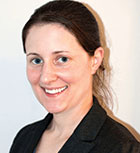BCSP Viewpoints: Best practices for exam prep and test taking

EDITOR’S NOTE: Advice and perspective from the Board of Certified Safety Professionals.
Life as an adult is busy. Between work, family and day-to-day commitments, free time is a valuable commodity.
When you’re pursuing a degree or certification, it can be difficult to find the time to prepare for an exam. Therefore, it’s important to maximize your productivity with a solid strategy. Answering the three W’s – who, what and where – can help you create an ideal study plan so you can take your exams with confidence.
Who. Ask yourself, “What type of student am I?” We all have favored learning methods. Some people prefer in-person environments, where they can interact directly with an instructor, ask questions and gain insight from classmates. Others prefer the independence of a virtual classroom, even one in which they can view the materials at a time of their choosing. Identify how you best retain information and use that to start your plan. This will include determining whether you want to join a formal study course, find other individuals studying for the same exam or study on your own at your own pace.
What. Next, ask, “What’s on the test?” Is the test format multiple choice, problem-solving, written or some combination of these? This may influence your study habits. Look for practice exams to assess your knowledge and identify areas of weakness that may require extra focus. Understand the test content and review blueprints, if available. It’s important to not memorize specific questions but to use those questions as a guide to understand overall concepts. Inquire about the number of questions on the exam and the time allotted to complete it. Learn what you can about the testing environment – any tools you may need or that will be provided, anything you’re not permitted to bring into the exam room, and whether breaks are allowed. Also, be sure to request any special accommodations in advance, if needed.
Where. Ask, “What’s my ideal study environment?” Some people thrive in a quiet room at home with no distractions. Others would rather sit at a busy coffee shop or a library. Whatever you prefer, it’s important to understand the most effective place for you.
Once you’ve identified your studying style, you can create a personalized plan of action to help stay on track. This plan can be informal, but understand when and where you’ll study, what materials are most important, and whether you’ll need additional resources. Being prepared will help ease stress on exam day.
As you sit for the exam, read each question carefully and completely. It’s easy to make assumptions on context, which might lead you to an incorrect answer. If you’re unsure of an answer, skip the item and move on to the next one. This will assist you with time management during the exam and allow you to return to that question later with fresh eyes. Perhaps the correct answer will come to you as you work through the rest of the exam.
Finally, be sure to answer all the questions. Failure to provide an answer only ensures you’ll not receive any points for that question. If it’s a multiple-choice test, do your best to eliminate unlikely answers. Typically, it’s possible to eliminate one or two choices, increasing your odds of selecting the correct answer.
As you approach an exam, proper preparation will be key to your success. Understanding the testing environment, the exam content, and your most effective method and location for studying will give you the best chance to accomplish your goal.
This article represents the views of the author and should not be considered a National Safety Council endorsement.
 Angela Giotto, Ph.D., MPH, CSP, is the director of research and product development for the Board of Certified Safety Professionals. She provides direction in the design, development and deployment of BCSP’s examCORE, learning programs and other preparatory products. She also serves as the managing editor of the BCSP Foundation’s peer-reviewed journal SHIFT: Global EHS Research to Practice.
Angela Giotto, Ph.D., MPH, CSP, is the director of research and product development for the Board of Certified Safety Professionals. She provides direction in the design, development and deployment of BCSP’s examCORE, learning programs and other preparatory products. She also serves as the managing editor of the BCSP Foundation’s peer-reviewed journal SHIFT: Global EHS Research to Practice.
Post a comment to this article
Safety+Health welcomes comments that promote respectful dialogue. Please stay on topic. Comments that contain personal attacks, profanity or abusive language – or those aggressively promoting products or services – will be removed. We reserve the right to determine which comments violate our comment policy. (Anonymous comments are welcome; merely skip the “name” field in the comment box. An email address is required but will not be included with your comment.)


